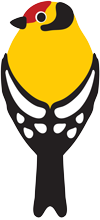Innovative project aims to add value to Welsh wool.
Arloesi Gwynedd Wledig, a project by Menter Môn, has made exciting findings regarding the quality of wool and meat during an innovative pilot project focusing on breeding new versatile sheep.
The aim of ‘Multi-purpose Sheep’ was to improve the quality of Welsh wool produced on farms in Gwynedd, without compromising the quality and yield of lamb/mutton meat. This aim has been achieved with data proving the multi-purpose sheep to be a versatile breed that produces high quality carcasses and wool.
Two years ago, semen from a Merino ram named Charlie was imported from Australia and used to artificially inseminate 35 Romney sheep on two farms in Gwynedd. Throughout the last year the multi-purpose lambs proved that they could thrive in the UK environment without any welfare concerns. It was also shown that the breed could be managed in the same way as native breeds.
The progress of the lambs was monitored over the last year, focusing on growth rates, wool characteristics and samples, and meat quality. The biggest finding was the improvement in the multi-purpose lamb’s wool characteristics compared to the control group.
Lambs from both farms were shorn before going to the abattoir and side samples of wool were taken and sent to the Wool Testing Authority in Caernarfon. The Merino cross Romneys achieved an average of 22.1 Micron, compared to an average of 30.3 Micron from the control group. The lower the micron the better as it means the wool is finer and softer so can be used to create a more high-end product, therefore increasing its value. This was particularly impressive as it was much finer than the farmers expected, especially considering they were only first cross lambs.
Another interesting discovery was that the average weight of the multi-purpose lambs was higher than the lambs of the control groups throughout the project. The slaughter weight was 12% heavier than those of the control group, but the carcass score was not quite as good. The multi-purpose lambs achieved a carcass grading of O3L (fair, optimum fat) whereas three of the four lambs from the control group achieved a slightly better R3L (good, optimum fat). But feedback from the farmers confirmed that the merino cross carcasses were impressive, and the meat was tasty.
Betsan Siencyn, Arloesi Gwynedd Wledig Senior Projects Officer said:
“This scheme was the first of its kind in Wales as we sought to breed lambs with a much better quality of wool without compromising their meat. The scheme has been a success, and the findings can be shared with farmers across the country. It has been demonstrated that the wool has added value, and an additional source of income can be generated. This is crucial as many in the industry face the future with uncertainty.”
Two farms in Gwynedd were part of the ‘Multi-purpose Sheep’ scheme – Arwel Jones, Blaen Cwm Farm, Corwen and John and Gillian Williams, Parlla Isa Farm in Tywyn. The Williams family said:
“It’s a very exciting project, and it’s great to have been a part of it. We are keen to increase the flock of 17 ewes to 300 in the future. The next test will be to see how the ewes cope during breeding. But given that the scheme has been a success so far, we’re hopeful we can go on to produce a far more useful breed in terms of wool and meat, and as a result, there is a chance to receive many more benefits.”
A more in-depth explanation of these findings will be presented at the ‘Adding Value to Wool’ event at Parlla Isaf Farm, Tywyn on Thursday the 8th of June, which is being organised by Made with Wool, another project by Menter Môn. At the event there will be an opportunity to ask the farmers about their experience over the past two years. The day will begin at 12pm with an opportunity to network over lunch with presentations to start at 1pm, followed by live demonstrations by the Welsh Woolshed. To confirm your attendance, email gwlan@mentermon.com by Thursday the 25th of May.
Made with Wool is a project that seeks to realise the potential of Welsh wool. Elen Parry is the project manager:
“We are thrilled that this scheme has been a huge success. It will mean that Welsh farmers can produce lambs with a much higher quality of wool, which in turn will increase the number of end uses for the wool, increasing demand and hopefully the price. The main aim of this will be to increase the price farmers get for their wool. It’s a worrying time for the wool industry in Wales, and that’s what our Made with Wool project is all about. By developing schemes such as this one with versatile sheep breeding, it is going to enable the relevant research to be done and ensure a future for this important industry in Wales without compromising the meat industry that is already so successful here”
The project has received funding through the Welsh Government Rural Communities – Rural Development Programme 2014-2020, which is funded by the European Agricultural Fund for Rural Development and the Welsh Government. It’s also part funded by the Nuclear Decommissioning Authority (NDA) and Gwynedd Council.
For project updates follow Arloesi Gwynedd Wledig on Twitter, Instagram or Facebook.

